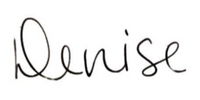You’re in a time crunch for a big presentation with a client. You’re not sure, but you think you ate a meal today. You KNOW you haven’t slept much. Who can sleep when the pressure’s on? But this presentation has to get done, you just have one more point to address in that report and you’re all set. You come back from grabbing a coffee and access the computer file you need to work on.
But where is it?
You saved it, it was right here, in THIS folder on your hard drive. But you can’t seem to see the file.
What’s going on?
A restart of your system confirms what you’ve been dreading. The file is gone, along with several others in the same location.
Time to pull an all-nighter, because you have to do the whole thing over again.
We don’t think about file loss until it happens, and it’s extremely important that we plan for it. It WILL eventually happen. It’s happened to me. I had all my youngest son’s baby photos backed up on a hard drive, and it failed one day. I still can’t access it, without paying big money for a techie to go in and salvage them.
It’s happened to me. I had all my youngest son’s baby photos backed up on an external hard drive, and it failed one day. I still can’t access it, without paying big money for a techie to go in and salvage them.
Since that day, I’ve realized that external hard drives are great, but you should always save the really important stuff in more than one place.
What can cause a hard drive to fail?
- overheating
- water damage
- fire damage
- magnet exposure
- impact from a drop
- power surge
There can also be internal problems, such as file corruption, software problems, unstable drive read, and human error.
Sometimes the hard drive failure is quick and sudden, but other times it’s a slow death. Wear and tear on the hard drive are natural. Some signs of a slow hard drive death can include unusual noises from the unit, repetitive crashes, and unusually hot systems.
So what is the solution?
Two words: cloud storage.
Remember the baby pictures I mentioned? I don’t take any chances now. I have family photos on my computer and on cloud storage.
Here are some great cloud storage options for you:
Google Drive
Google offers 15GB of free cloud storage that you receive when you sign up for a free account. There are options to upgrade your storage within your account, and the pricing is pretty reasonable. Click here to check to price. *Some Chromebook purchases come with 100 GB extra space for one or two years – look into this!
DropBox
DropBox cloud storage offers 2GB of free cloud storage with free accounts and allows users to earn more storage by completing the Getting Started Guide. You can also earn more space by referring friends to sign up. By doing both of these things, you can earn 5GB of space. You can upgrade from there to 1TB, or, if you need even more space, consider a team option. Learn more by clicking here.
OneDrive
OneDrive offers 5GB of free cloud storage with an account, with the option of upgrading to 50GB for a fee. Office 365 comes with 1TB of cloud storage, with options to upgrade as well. You can check out the options here.
iCloud
iCloud offers several plans for Apple customers, ranging from the 5GB that comes free with an account, up to 2TB. You can learn more by visiting the pricing page.
Other ways to reduce the chances of lost data:
- keep drinks away from your system
- use a surge protector
- create a backup before the first signs of a problem
- backup your files to more than one location
- keep your system dust-free
- don’t delete system files if you don’t know what they’re used for
- if your system gets hot, carefully take it apart to clean it
- make sure your anti-virus is always up-to-date
- stay away from questionable websites, don’t open suspicious emails
By implementing more than one backup option and regularly maintaining your system, you will greatly reduce any chance of sudden loss. Back-up and back-up often.
My last piece of advice to you is to make sure your assistant is practicing these same great habits.
I learned a very valuable lesson when I lost precious photos. I don’t take any chances with my work for my clients. I use DropBox and Google Drive for my backup, so you know our hard work is safe.
Book a free consultation call with me and we will develop a plan that’s best for you AND your files.


